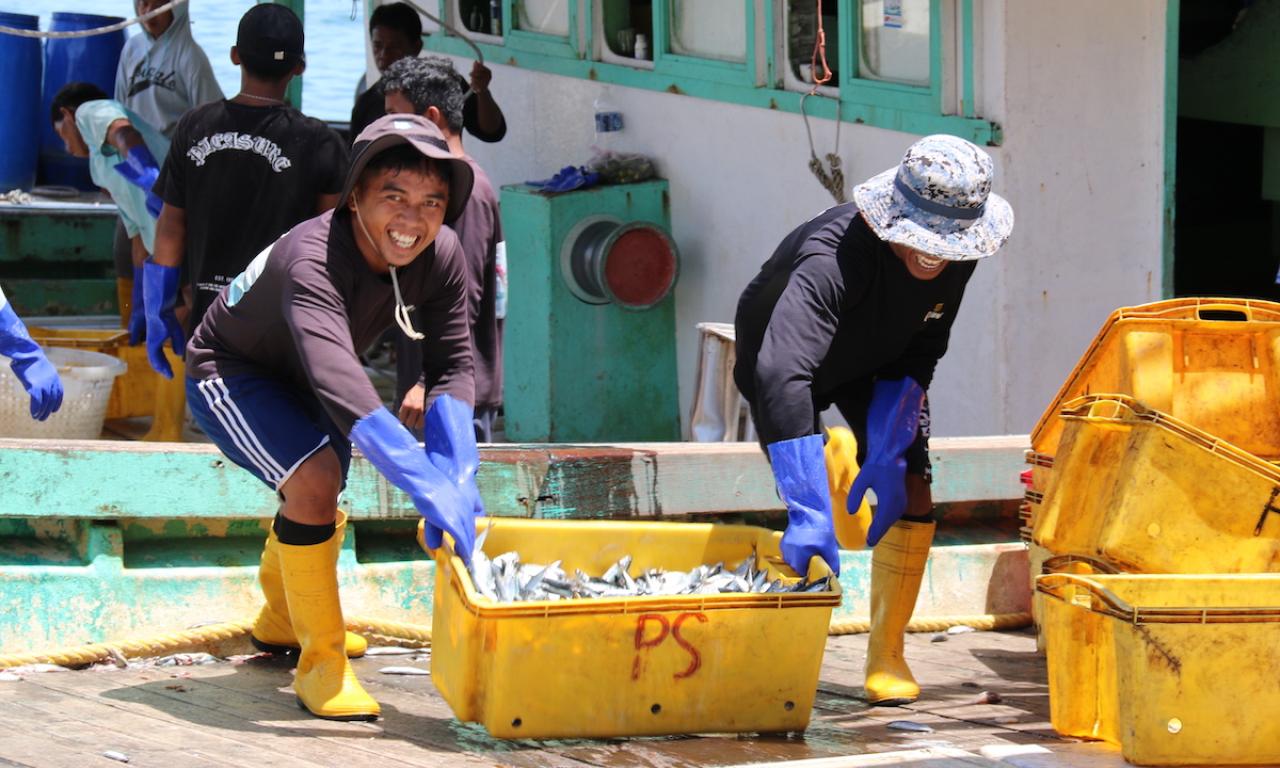
In conjunction with World Oceans Day, WorldFish Director General Essam Yassin Mohammed sat down with BFM presenter Lim Sue Ann to dive into how we can better protect our oceans through the lens of sustainable aquaculture and fisheries.
The ocean covers more than 70 percent of this blue planet and plays an essential part in supporting all life on this planet. We rely on the ocean to produce more than half of the planet’s oxygen as well as to provide sustenance and jobs for us humans. But with our marine and aquatic ecosystems under stress and threat, what does this mean for the future of our planet and humanity?
In conjunction with World Oceans Day, which is celebrated annually on the 8th of June, WorldFish Director General Essam Yassin Mohammed sat down with BFM presenter Lim Sue Ann to dive into how we can better protect our oceans through the lens of sustainable aquaculture and fisheries.
Q: Why do we need this focus on sustainable and equitable aquaculture and fisheries as part of this bigger discussion on climate change mitigation?
A: Our existence primarily lies in the health of the planet. As you rightly said, every other breath that we inhale comes from aquatic environments, primarily the ocean.
It's so important that we treat aquatic ecosystems as an asset. If you have a certain asset, you keep on investing in it. Therefore, we need to continue investing in the natural capital that we have with the ocean so that the way we utilize these resources is sustainable in such a way that it benefits us today and future generations to come in a very socially just manner.
WorldFish is a value and purpose-driven organization and that's what motivates us. It has come to the point of existential threat for humanity unless we reverse these alarming threats that we are seeing pertaining to our natural environment, particularly our ecosystems.
Q: How sustainable or unsustainable would you say are our current practices when it comes to how we are utilizing the resources of the marine ecosystem?
A: I think saying unsustainable is an understatement. A significant part of the commercially important fish in the world is overexploited. An alarming rate of species are joining the list of highly threatened species and our abilities to exploit the resources have grown exponentially.
The world gives around $30 billion a year in fishing subsidies. Without these subsidies, fishing vessels that can venture out up to 1000 miles from the shore to fish would not be economically viable. We wouldn't have gotten to the point where we are today had we not given these subsidies. Recently, at the WTO negotiations, countries negotiated a pathway to end harmful subsidies.
This is just an example of how our policies can also enable, incentivize or create perverse incentives to go and assault aquatic ecosystems. Therefore, the first thing we need to do is to acknowledge it, address it and eliminate harmful practices so that we can transition towards sustainability.
Q: What have you seen in terms of the impact of the degrading health of the ocean on people, especially local coastal communities?
A: Let me bring back an example of climate change. Unlike human beings, fish are able to migrate anywhere they want. When the water gets warmer, it gets a bit acidic or it's not necessarily productive, fish migrate to optimal environments.
While before, people had access to these resources and they were able to go fish, put food on the table, feed their families and earn some income, now, as these fish migrate to optimal environments, it makes it technically and financially prohibitive for most of these fisher communities to pursue their fish.
There is pollution as well, where we see a lot of contamination in aquatic foods these days. Through a process called bioaccumulation, fish accumulate harmful toxins – cosmetic or pharmaceutical products discharged into the sea – and we consume them. What we’re consuming now is all these toxic materials, which have an impact on human health, putting a lot of pressure on our health systems.
Q: Do you see an interest among governments to look into this particular aspect, from both an economic and conservation perspective? Is there interest to grow this industry in a sustainable manner?
A: That's an excellent question. Politicians make judgments in many cases, at least in an ideal world, based on what the numbers are saying. Currently, the conventional market system doesn't put any monetary value on having a clean beach, a healthy coral reef or a healthy stock.
Part of our role in WorldFish, in partnership with others, is to generate data to help politicians or decision-makers understand the value of these ecosystems. The onus is on us to unleash that hidden asset and demonstrate to these politicians the economic value. I think if we do that more and more, a lot of politicians will make decisions in favor of preserving and sustaining these ecosystems.
Listen to the full interview below.
This podcast originally appeared on BFM.
